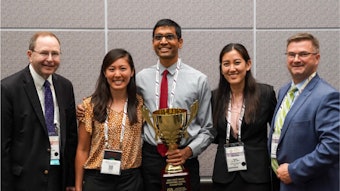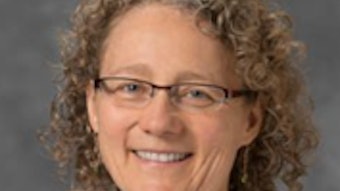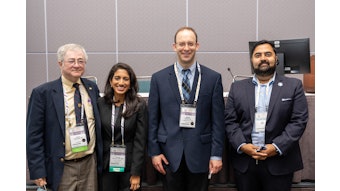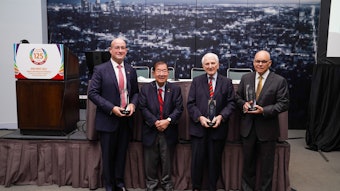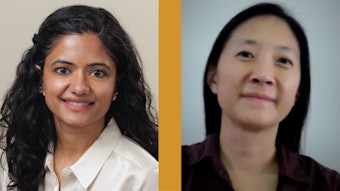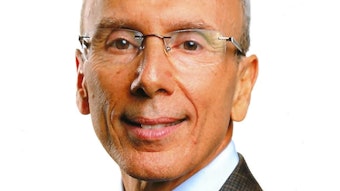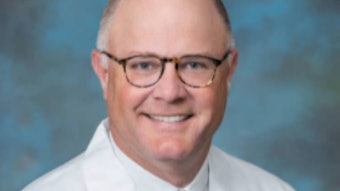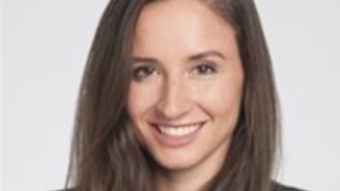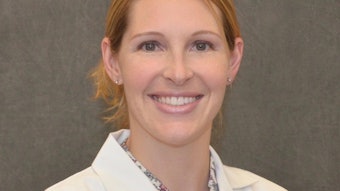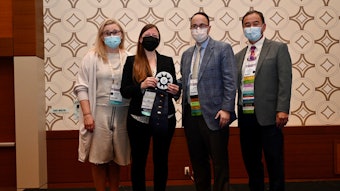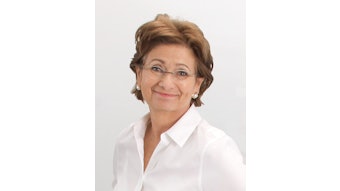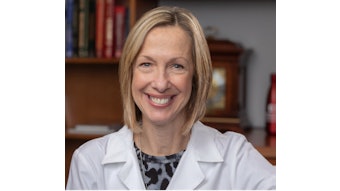Can Global Surgical Skills Training Be Done Remotely?
Imagination, cell phones, webcams—and even red peppers—can expand global skills training.
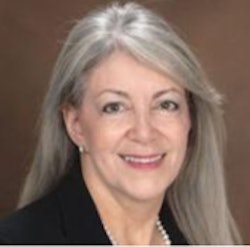
Teaching head and neck surgery skills across the world requires ingenuity. Add a pandemic that restricts travel, and otolaryngology-head and neck surgeons have to become even more clever. Fortunately, members of the AAO-HNSF Simulation Education and Humanitarian Efforts Committees are on the job, creating low-cost skills training that can be taught from Costa Rica to Vietnam.
Wednesday morning’s 7:00 – 8:00 am session will provide tips, tricks, and perspective on global skills training.
Global skills are the skills that can be performed around the world and are universally practiced by well-trained otolaryngologists, according to session moderator Merry E. Sebelik, MD.
“Both trainees and practicing otolaryngologists alike learn new skills throughout their careers; this applies to surgeons in Michigan or Malawi,” said Dr. Sebelik, professor of otolaryngology-head and neck surgery at Emory University in Atlanta, Georgia.
So, can global skills training be done remotely? Yes, said Dr. Sebelik, if imagination and widely available technology—cell phones, internet, webcams, virtual meeting programs—and inexpensive teaching models are put to use.
“Attendees at the session may pick up tips on how to practice and teach a skill on a low-cost trainer,” said Dr. Sebelik. “They may look at their methods of observing trainees and consider changing their assessments to a coaching model.”
The training benefits also from the trainer being a surgical coach, who Dr. Sebelik describes as a “either a teacher or a peer, who observes you performing a task or procedure, and provides real-time critique and advice, not a grade or score or evaluation that is available weeks after the task.”
However, teaching a skill is not enough, Dr. Sebelik said. “Teaching someone else to teach the skill closes the loop.”
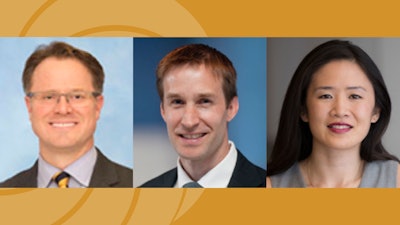 Panelists of Global Skills Training: Can It Be Done Remotely?: Gregory J. Basura, MD, Kaalan E. Johnson, MD, and Christina J. Yang, MD
Panelists of Global Skills Training: Can It Be Done Remotely?: Gregory J. Basura, MD, Kaalan E. Johnson, MD, and Christina J. Yang, MD
Session attendees will learn directly from the presenters, who will demonstrate surgical skills in ear surgery, airway management, and sinus endoscopy.
- Dr. Sebelik will discuss remote skills training and coaching, using a Zoom and webcam setup, and demonstrate examples of real-time assessments and validated scales of trainee autonomy (e.g., RAPID scale) that can be shared via a cell phone app.
- Gregory J. Basura, MD, associate professor of otolaryngology at the University of Michigan in Ann Arbor, Michigan, will explore setting up temporal bone labs and training in low- to middle-resource countries and methods for skills transfer to local educators.
- Kaalan E. Johnson, MD, director of the aerodigestive program at Seattle Children’s Hospital in Seattle, Washington, will demonstrate how he and his Costa Rican colleagues provide low-cost pediatric airway foreign body and surgical training, which can be reproduced by educators in remote settings using a porcine model, inexpensive foreign bodies, and simulated rib. He also will demonstrate that skills transfer can be equal to using high cost/high tech equipment.
- Christina J. Yang, MD, assistant professor of otorhinolaryngology-head and neck surgery at Albert Einstein College of Medicine and Josh Feintuch, MD, and Jeremy Feintuch, MD, fellows in otorhinolaryngology-head and neck surgery at Einstein in Bronx, New York, will discuss how a red pepper—whose insides closely simulate sinus cavities—can be used as a trainer in low resource settings as well as in U.S. training programs.
Visit the Annual Meeting & OTO Experience Meeting Daily for more articles.
